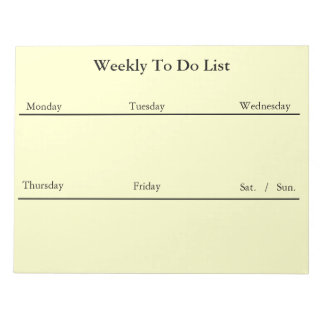Family Financial Feuds: The Case of the "Borrowing" Sibling
Watching those close to us age is stressful for everyone, but certain
situations seem guaranteed to set family members against one another and start
families unraveling at the seams.
And nothing causes more distrust and divisiveness among siblings than feeling
they're not being treated equally or that one sibling is taking advantage of a
parent at the others' expense. Case in point: Online support groups
are filled with discussions about difficult family situations involving money,
uneven sharing of caregiving responsibilities, dishonesty, or all three.
When One Sibling Repeatedly Borrows Money From a Parent and Other
Siblings Resent It
This story plays out in all sorts of ways, but the central player is an adult
child (or cousin, or nephew...) in difficult straits who frequently goes to
aging parents asking for "loans," help with living arrangements, or out and out
handouts.
Take Bill, a less-than-successful 36-year-old who always seems to be moving
home while he "gets on his feet again." While there, he eats his parents' food,
drives their car, and always seems to need $40 to "tide him over." He was mom's
baby, and she can't say no. Meanwhile older sister Kate is driving dad to
doctor's appointments, bringing hot meals, and coming over on Saturdays to clean
the bathroom. (Somehow, in this story, it's almost always a sibling who's not
doing much of the caregiving who's asking for help; meanwhile, other sibs who
are bearing the brunt of helping out, feel unrewarded for their loyalty.) Sound
familiar?
I asked several experts in family dynamics for some suggestions in dealing
with this situation, and got a lot of ideas. I also asked people whose stories
followed this plotline to tell me what worked for them, and what just made
tensions flare even more. Here are their thoughts, suggestions, and
admonitions.
-
Recognize selfishness for what it is -- a focus on the self at the
expense of others.
Let's face it, psychologists say, people are
wired differently, and some naturally think carefully about how their actions
affect others -- while others don't. If you reflect back over your childhood,
you may realize there's a pattern here -- self-obsession to the point of
narcissism is often at the root of this kind of behavior, psychologists and
other experts say. Recognizing that your sib falls into this category doesn't
solve your problem, but it gives you some context, so you're not continually
caught by surprise. And it allows you to stop expecting something different from
him, and getting hurt when it doesn't happen.
-
Don't take selfishness personally.
One thing experts
suggest in all these types of scenarios is to depersonalize it as much as you
can. While you certainly have every right to feel hurt and angry -- and to have
thoughts such as "how could she?" -- your sibling is probably not preoccupied
with the emotional side of things. She probably doesn't even fully recognize her
actions as hurtful. Remember, to these folks, it's all about them; you're a bit
player in their ongoing drama.
-
Desperation makes people do desperate things.
Remind
yourself that when people back themselves into a corner, they tend to come out
swinging. If the problem child in your family wasn't like this in the past, it
may be that personal troubles have overridden her better judgment. That's not an
excuse -- remember the old saying about hard times showing people's true colors.
At the same time, it's a good strategy for managing your own feelings of
betrayal to point out to yourself that it's not your sibling's best self you're
dealing with.
-
Recognize if there's alcohol, drugs, gambling, or another addiction
involved
One useful strategy comes from family therapists who deal
with addiction: Try to separate the addiction from the person. For example,
counselors might tell you to picture the gambling addiction or acoholism as a
monster riding on your family member's shoulder, controlling his or her actions.
This is not to get your family member off the hook -- but it can be
very comforting when dealing with feelings like, "My baby sister used to be so
sweet; what happened?"
-
Self justification is a powerful thing -- don't try to fight
it. The adult child who begs, borrows, or even steals from a parent or
other family member usually surrounds himself with an elaborate scheme of
self-justification. Attempts to break through this bubble of victimization and
get him to admit he's behaved badly, or to apologize, are likely to be met with
complete failure. The reason? To take such an extreme step in the first place,
your sibling had to talk himself into feeling his actions were justified. Most
often, some old resentment, mistrust, or dissatisfaction that's festered for
years is the foundation on which the self justification is built. Do any of
these sound familiar?
--Mom and Dad paid for you to go to college, and I didn't get as good an
education, so your earning power is much higher than mine -- hence I should get
more now. (The fact that said sib chose to play in a rock 'n roll cover band
rather than go to college has been conveniently forgotten.)
--You moved away and married into a more affluent family while I stayed here
to be closer to our parents, and now I need more help.
--Mom and dad loved their grandchildren to death, and would have wanted to
give them money to start out in life; how could you begrudge them that?
--I've had health problems/financial setbacks/personal issues that have put
me in this situation, and now when Mom and Dad want to help me, you resent
it.
Once you've accepted that your sibling is mired in a quicksand of
self-justification, don't try to break through it. It will just be an exhausting
and pointless waste of time and energy, because these types of justifications
tend to multiply like Gorgon's heads.
What do
you do? This is where it gets
tricky, because unless your sibling (or cousin, or nephew...) out-and-out stole
or defrauded your parents, you have to recognize that it's your parents' money,
not yours, to do with what they will. But there are still a number of strategies
that others have found effective.
1. Separate the personal and the practical. Recognize that
to your sibling this is a financial matter -- he needed money, felt he was
entitled (or constructed a new reality to make himself feel entitled) and took
it. You have all sorts of emotional issues of trust, respect, and loyalty mixed
up in the situation, but your sibling may not see any of this. So depersonalize
the situation as much as you can and treat it like any other business deal. Do
your parents feel resentful, or do they feel it was a fair deal? Was the money a
loan or a gift? If it's a loan, on what terms will it be repaid?
2. Change what you can change -- your own actions -- and leave
others' actions to them. What often complicates these situations is
resentment, experts say; the sibling who's behaving honorably and responsibly
resents the contrast between her role and that of the freeloading sib.
Unfortunately, the hard reality is that you can only change yourself, not
others. And it's quite possible that your resentment is fueled by your own
panic. In other words, you're burdened beyond what you can handle, and
desperately wish your sib would help out.
But let's face it: That's not going to happen. So where
can you get
some help? How can you reduce your load? Look for help from other sources --
neighbors, friends, other family members, your parents' church. Talk to your
parents and sibling(s) and explain that you're shouldering more than you can
manage, and have to step back a bit. Then wait and see - maybe faced with a
need, your parents will demand that slacker sib step up. If not, their response
is not up to you, but you can help your parents look for other solutions.
3. Focus on long-term rather than short-term fairness. You
may not be able to make the situation fair now, but it can help to think of ways
to make things better in the future. Many siblings have had good luck bringing
loans or gifts to the attention of the executor of a will, and getting the money
treated as an "advance" on that sibling's inheritance. In other words, if your
sister "borrowed" $20,000 from your parents for the down payment on a house, her
share of the inheritance is $20,000 less than yours. You may need the help of an
estate attorney to help you and your family sort this all out, but it's probably
worth it to get the issue out in the open.
No question, we've only touched the surface of this important topic. More to
come, and please feel free to describe your experiences and solutions.




















